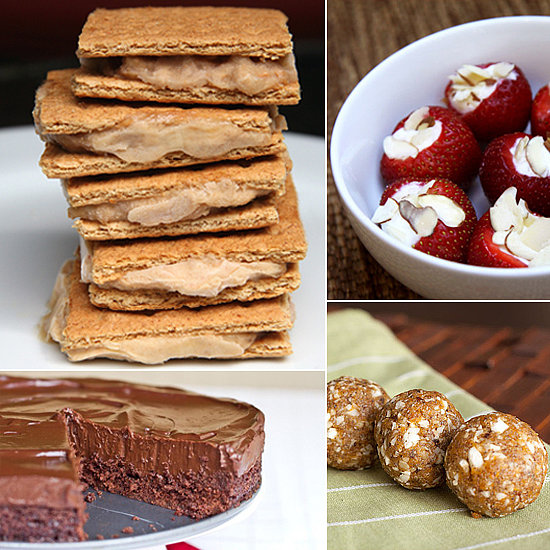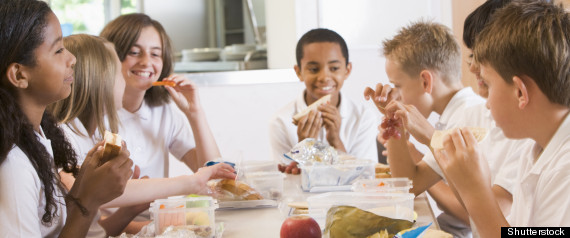Kids Health Tips Biography
Source:- Google.com.pkBack in June, federal authorities unveiled MyPlate, an icon designed to help Americans follow healthy eating patterns. It’s a nice, colorful image that was a welcome successor to the misguided MyPyramid. But it doesn’t offer much in the way of useful information.
A group of my colleagues at Harvard Health Publications worked with nutrition experts at the Harvard School of Public Health to create a better version. We call it the Healthy Eating Plate. “We gave MyPlate a makeover to provide consumers with an easy to use but specific guide to healthy eating based on the best science available,” says Dr. Anthony Komaroff, a professor of medicine at Harvard Medical School and Editor in Chief of Harvard Health Publications.
(Click here for a larger, printable version.)
The Healthy Eating Plate uses visual elements of MyPlate as a starting point, because the government’s icon is already becoming a recognized teaching tool. But the resemblance ends there.
Here is what the Healthy Eating Plate recommends:
Make half your meal vegetables and fruits. Go for variety. And keep in mind that potatoes and french fries don’t count.
Choose whole grains whenever you can. Limit refined grains, like white rice and white bread, because the body rapidly turns them into blood sugar.
Pick the healthiest sources of protein, such as fish, poultry, beans, and nuts; cut back on red meat; avoid bacon, cold cuts, and other processed meats.
Healthy oils (like olive and canola oil) are good for you. Don’t be afraid to use them for cooking, on salad, and at the table.
Drink water, tea, or coffee. Milk and dairy are not must-have foods—limit them to 1-2 servings/day. Go easy on juice. Avoid sugary drinks.
And stay active!
Why bother modifying MyPlate? Because it offers little—or inaccurate—advice. It says nothing about the quality of carbohydrates (grains). White bread and white rice raises blood sugar in a flash—whole grains are better for long-term health. It makes no distinction between healthy sources of protein such as beans, fish, and poultry, and less healthy sources, such as red and processed meat.
In addition, MyPlate recommends milk or dairy at every meal, even though there is little evidence that high dairy intake protects against osteoporosis and substantial evidence that consuming a lot of milk and dairy foods can be harmful. It says nothing about healthy oils, which are good for the heart, arteries, and the rest of the body. And it is shockingly silent on sugary drinks, which provide far too many empty calories.
The federal government has been in the food icon business since 1992, when it unveiled the Food Guide Pyramid. It was built on a shaky foundation, influenced more by the food industry and agriculture interests than by science. MyPlate continues this unhelpful trend.
The Healthy Eating Plate is based on nutritional science and is not influenced even a smidgeon by commercial pressure. We hope it will be a useful alternative that provides specific direction for anyone who needs help following a healthy diet.
Don't be surprised if your children just can't ignore the fact that there's still Halloween candy in the pantry. Their brains are designed to be obsessed with Snickers, Nerds, and Reese's Pieces. And that inability to ignore the candy is what makes them such amazing learners and discoverers.
That's what I just heard from Sharon Thompson-Schill, a professor of psychology and neurology at the University of Pennsylvania. For 15 years, she's been studying adults who have trouble remembering things because of damage to the frontal lobe of their brains. Along the way, she realized that young children act a lot like brain-damaged adults. "Learning and behaving without a frontal lobe is different than learning and behaving with one," Thompson-Schill says. "[Children are] impulsive, they don't follow rules, don't stay on task."
Indeed, the past decade of research on children's brain development has shown conclusively that they are not little adults and that the prefrontal cortex, the part of the brain used for higher-order decision making, doesn't mature in humans until the teenage years or beyond. That's undoubtedly an evolutionary development, says Thompson-Schill, since there's no such difference between child and adult brains in other primates. She calls that delayed frontal lobe maturation "cognition without control," the title of her new paper in Current Directions in Psychological Science. Cognition without control is a good thing for children, the scientist says, even if it sometimes drives their parents bonkers.
Appreciating the talents of the tiny brain is a trend; it's also the topic of Alison Gopnik's wonderful new book, "The Philosophical Baby: What Children's Minds Tell Us About Truth, Love, and the Meaning of Life" (Farrar, Straus and Giroux, $25). Gopnik, a researcher at the University of Washington, has shown how preschoolers use probability and other sophisticated forms of thinking in figuring out how the world works—without any Baby Einstein videos, skills tutors, or flashcards, thank you very much.
Children's very different brains also make them uniquely talented at discovering and creating. "Adults are really bad at discovery," Thompson-Schill says, because we look for what we think we're going to find and filter out the rest. Children don't filter the world like that, but the downside is that they pay attention to everything. (So that's why all my pleas to "focus" on homework have zero effect.)
When her three children were young, Thompson-Schill says, "I was definitely more generous in attributing those behaviors to brain maturation and not disobedience." And she used a lot of the same tricks she uses in dealing with adult frontal lobe patients to discipline her children. Here is Thompson-Schill's advice on matching parenting tactics to children's cognitive abilities:
Children's behaviors are driven by their environment, not by the little voice inside their heads—or your own voice—telling them to behave. Tired of arguing over eating too much of that Halloween candy? Hide it, or get it out of the house. (Our dentist recommends a two-day pigout before donating it all.)
If you want your child to be a great soccer player, don't sign her up for lessons. Adults teach children sports the way adults learn, with drills and verbal commands. But kids learn best just by playing and figuring out for themselves what works. Thompson-Schill thinks that's why Americans fare poorly in soccer compared to other countries, where children are outside all day, kicking the ball around with their friends.
Don't expect a small child to be good at focused tasks. "A lot of what goes on in early childhood education is trying to get that brain to do something that it's not going to do," Thompson-Schill says. Let children work on projects for short amounts of time and switch between tasks. Most of all, let them play.
Focus on the amazing things that children can do easily and adults can't, like learn a second language, write stories, draw, and create imaginary friends.
Kids Health Tips Health Tips For Men In Hindi In Urdu Before Marriage Pdf Before Marriage In Urdu Over 50 In Hindi Language In Tamil In Hindi Pdf In Tamil Language

Kids Health Tips Health Tips For Men In Hindi In Urdu Before Marriage Pdf Before Marriage In Urdu Over 50 In Hindi Language In Tamil In Hindi Pdf In Tamil Language

Kids Health Tips Health Tips For Men In Hindi In Urdu Before Marriage Pdf Before Marriage In Urdu Over 50 In Hindi Language In Tamil In Hindi Pdf In Tamil Language

Kids Health Tips Health Tips For Men In Hindi In Urdu Before Marriage Pdf Before Marriage In Urdu Over 50 In Hindi Language In Tamil In Hindi Pdf In Tamil Language

Kids Health Tips Health Tips For Men In Hindi In Urdu Before Marriage Pdf Before Marriage In Urdu Over 50 In Hindi Language In Tamil In Hindi Pdf In Tamil Language

Kids Health Tips Health Tips For Men In Hindi In Urdu Before Marriage Pdf Before Marriage In Urdu Over 50 In Hindi Language In Tamil In Hindi Pdf In Tamil Language

Kids Health Tips Health Tips For Men In Hindi In Urdu Before Marriage Pdf Before Marriage In Urdu Over 50 In Hindi Language In Tamil In Hindi Pdf In Tamil Language

Kids Health Tips Health Tips For Men In Hindi In Urdu Before Marriage Pdf Before Marriage In Urdu Over 50 In Hindi Language In Tamil In Hindi Pdf In Tamil Language

Kids Health Tips Health Tips For Men In Hindi In Urdu Before Marriage Pdf Before Marriage In Urdu Over 50 In Hindi Language In Tamil In Hindi Pdf In Tamil Language

Kids Health Tips Health Tips For Men In Hindi In Urdu Before Marriage Pdf Before Marriage In Urdu Over 50 In Hindi Language In Tamil In Hindi Pdf In Tamil Language

Kids Health Tips Health Tips For Men In Hindi In Urdu Before Marriage Pdf Before Marriage In Urdu Over 50 In Hindi Language In Tamil In Hindi Pdf In Tamil Language

Kids Health Tips Health Tips For Men In Hindi In Urdu Before Marriage Pdf Before Marriage In Urdu Over 50 In Hindi Language In Tamil In Hindi Pdf In Tamil Language

Kids Health Tips Health Tips For Men In Hindi In Urdu Before Marriage Pdf Before Marriage In Urdu Over 50 In Hindi Language In Tamil In Hindi Pdf In Tamil Language

Kids Health Tips Health Tips For Men In Hindi In Urdu Before Marriage Pdf Before Marriage In Urdu Over 50 In Hindi Language In Tamil In Hindi Pdf In Tamil Language

Kids Health Tips Health Tips For Men In Hindi In Urdu Before Marriage Pdf Before Marriage In Urdu Over 50 In Hindi Language In Tamil In Hindi Pdf In Tamil Language

Kids Health Tips Health Tips For Men In Hindi In Urdu Before Marriage Pdf Before Marriage In Urdu Over 50 In Hindi Language In Tamil In Hindi Pdf In Tamil Language

No comments:
Post a Comment